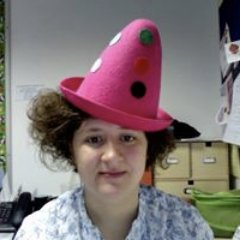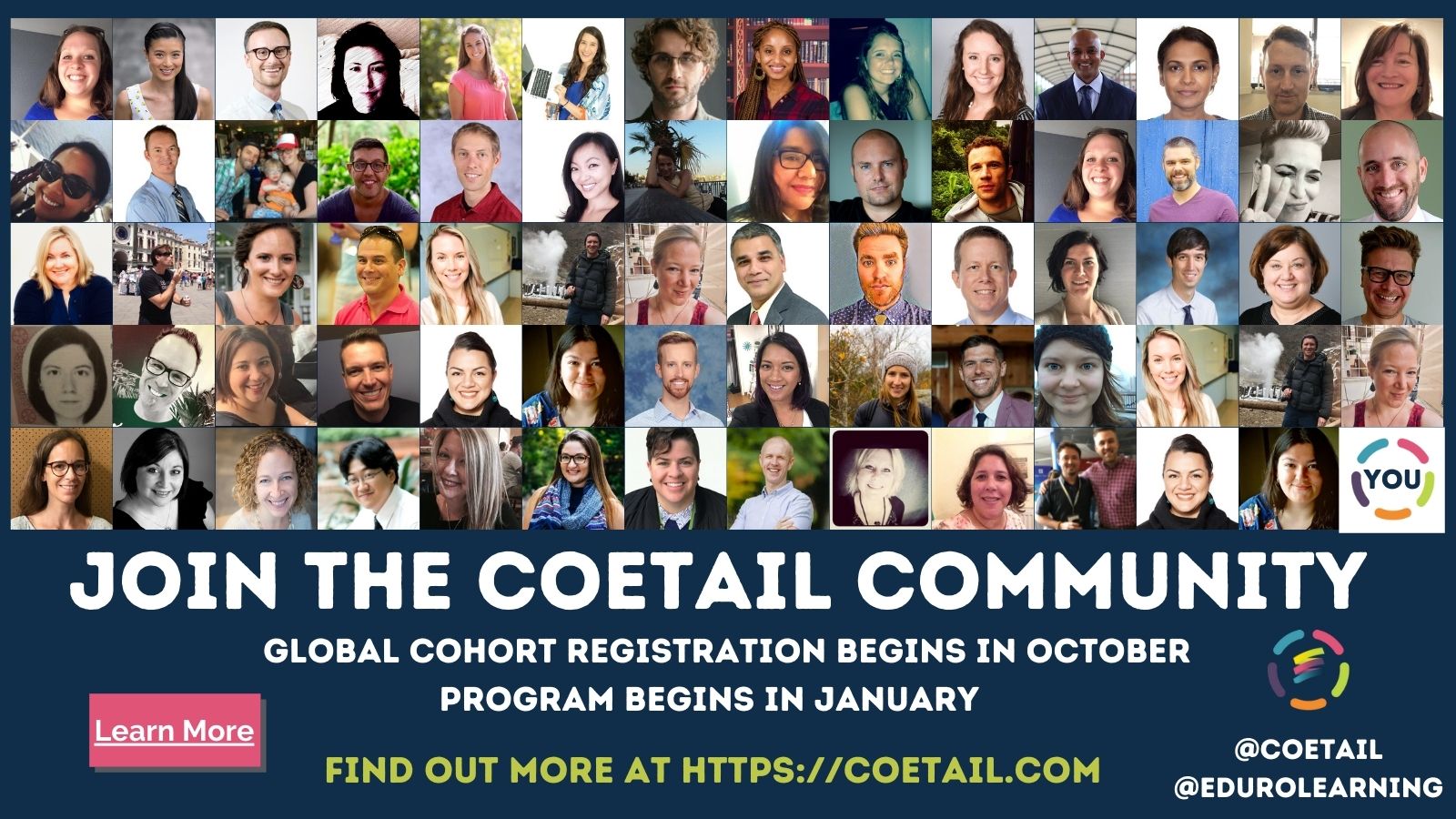In this #coachbetter episode, Kim chats with two of our amazing The Coach graduates, Cary Hart and Andre De Koker. Cary and Andre are both graduates of the COETAIL program (Certificate of Educational Technology and Information Technology), and for the last academic year have been working on building Innovation/Design/Maker programs in their individual schools, Cary at the elementary level and Andre in middle school. They talk about what’s been successful, what’s been challenging & the ways that these roles leverage instructional coaching skills to build relationships, community & connection around design/maker/ innovative learning. In schools where this role is brand new, like Cary and Andre’s, there’s a lot to unpack and uncover about the role of an Innovation/Design coach. It’s fascinating to see the connections between Cary’s experience in Moscow and Andre’s experience in Shanghai at two different divisional levels.
Subscribe to #coachbetter via your favorite Podcast Player!
Featured Guests


Bonus! Watch the Spotlight Version on YouTube!
Show Notes
Tell us a little bit about your journey to get to where you are right now?
Cary: ES Tech Innovation Coach, started as a tech integrationist, currently building a physical space for innovation that Cary now manages
Andre: Concordia, Shanghai, First year as Maker Design & Integration coach, before MS STEM/ Humanities
What are some things that have gone really well? What’s exciting
Andre: being given the space, being able to organize and manage it in the way that makes sense to me. Easier to bring classes in for the maker part, it makes sense to the teaching community. They feel really supported & the kids are engaged.
Asking the right questions has helped so much. Stepping back and letting them tell me what they’re looking for has worked. As soon as the teachers start talking, I can just plant a seed or throw out some ideas and see what resonates with them. Brainstorm the ideas, let the teacher think through what might work & then the teacher comes back with what works.
It’s really exciting when it’s a collaborative idea, not just mine, it’s ours. Because the Makerspace is tangible, there are things I can show them in the space & let them touch & try.
Cary: Coaching with tech can be challenging because there’s nothing tangible. Leadership support. Larger coaching team in ES, as a team, this is a year of learning. Freedom to explore and experiment with support. Lots of financial support for the space too, PTA grants have made a big difference. Furniture in the space is not precious, not fixed furniture, means I’m very flexible in the space, have the freedom to do that because it was a blank room at the start. Every time students have worked in there, I have learned more about the space and what works and what doesn’t.
Safety system: color-coded system for the tools
Already had a relationship with teachers where I was responsible for tech, and teachers were responsible for content
Kim’s take: don’t rush – give yourself time to learn & figure it out, make sure that admin is on board with that perspective
What’s been a challenge
Cary: personal skills building. Figuring out the best ways to get the curriculum worked into the space, opportunities in every grade level for students to use the space authentically & built into the curriculum. How do I build skills before they need them, so they can come into the space prepared? To make sure that when they’re up there, they’re building and not just figuring out how to hold the hammer.
How much should I be coaching vs subject area expert?
How to get teacher buy in? Teachers to really be understanding how to supervise? Is there a point that I just hand it over to teachers? Or am I always there?
Andre: Teacher fluency: using part of faculty meetings to teach teachers how to use the space. Currently creating a Canvas course. “Certify” the teachers with some quizzes.
I feel like I’m managing the space the whole time. It’s hard to let them just use it because when you come back they’ve used it the way they shouldn’t have, or allowed students to use things that are dangerous. There’s a culture we have to build
Kim’s first thought: maybe some of this has to be a little less authentic and more structured to get teams & teachers up to speed (because of safety). “Cary’s 6 steps to success with the MakerSpace”
Andre: Biggest challenge is the title: Maker, Design & Innovation Coach: integration has nothing to do with maker space, but teachers see me as only makerspace
Leadership: work in MS, but report to Director of Teaching & Learning
Beginning coaching cycles: I can have natural conversations with teachers, we can have informal chats, but coaching on the integration side is something I’ve been putting off
Supervision: Cary’s recommendation: documenting work so all supervisors know what the role is
Like this Episode? You’ll love the COETAIL Program!
The Certificate of Educational Technology & Information Literacy is a 5-course online certificate program designed for educators ready to embrace innovative, technology-rich learning. COETAIL will empower you to leverage the technology you have to transform your practice in order to positively impact learning for all students. COETAIL embraces a community approach to learning through annual global cohorts that connect you with engaged educators, and supportive facilitators, around the world. Graduates of COETAIL are confident, adaptable, connected educators ready to tackle any new challenge that comes their way!
All educators are welcome: classroom teachers, coaches, specialists, school leaders. The program is customizable for educators in any setting. COETAIL is for educators who are ready to transform their practice through innovative pedagogical practices, and committed to a 1.5 year professional learning experience in a global cohort.
Our annual COETAIL cohorts begin in January every year. The cohort will run from January through to the following May (1.5 years). Registration opens the October before the cohort begins.






Recent Comments